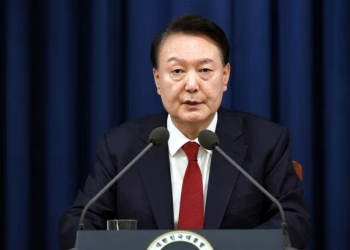At least 200 staff members have been implicated in the ongoing crackdown on holders of fake academic credentials within Parliament, according to reports. This situation highlights significant ethical decline and corruption in government hiring practices that has yet to be fully uncovered by the Public Service Commission (PSC), which employs civil servants.
The 254 has learned that the audit, initiated by the Parliamentary Service Commission over a year ago, has affected both senior and junior staff. This revelation has sparked anxiety in Parliament, with concerns that more employees may soon be implicated.
The audit is currently focused on verifying the authenticity of academic certificates—ranging from KCPE and KCSE to diplomas, degrees, and master’s qualifications—held by Parliament employees. Presently, the investigation targets those on the PSC payroll, with plans to extend the audit to staff in MPs’ constituency offices.
Approximately 1,300 individuals are on the PSC payroll, excluding constituency office staff. Among those already implicated are high-ranking directors and deputy directors, including both permanent and contract employees. Some have served in Parliament for decades and are nearing retirement, while others are more recent hires.
Several affected individuals are aides to prominent parliamentary leaders, including some working for commissioners. A source involved in the investigation noted, “It’s serious. As of now, over 200 people have been sent home. Their future remains uncertain.”
Attempts to reach PSC chairman Moses Wetang’ula, also the National Assembly Speaker, for comment were unsuccessful, as were inquiries directed at commissioners Johnson Muthama, Okong’o Omogeni, John Kinyua, and Mohamed Ali.
A commissioner, speaking anonymously, stated, “The exercise is progressing well, but it’s sensitive. We discovered that many individuals occupy positions they are unqualified for.”
When contacted, PSC secretary and CEO Jeremiah Nyegenye neither confirmed nor denied the crackdown but referred us back to Wetang’ula for comments. Muthama had previously confirmed that the PSC had initiated an audit of parliamentary staff’s academic credentials.
The audit, conducted by the Human Resources Department, follows the commission’s directive to eliminate academic fraud. It remains unclear what actions the PSC plans to take against those found guilty, but insiders suggest the implicated individuals have been given two options: resign or remain and face potential criminal investigations.
Sources indicate that while some PSC commissioners prefer a discreet approach to parting with the culprits—many of whom are long-serving employees—others are advocating for a more transparent process that involves handing over the offenders to investigative agencies.
The situation escalated after a top parliamentary leader’s aide was discovered using fake certificates for employment. In April, President William Ruto called on anyone with fraudulent academic credentials to resign and repay their salaries, stating that about 2,100 individuals had falsified their qualifications to gain government jobs.
In October 2022, the PSC requested that heads of state agencies verify their staff’s academic papers, with a final report pending compilation. However, PSC chairman Anthony Muchiri confirmed that numerous cases of fraudulent certificates had already been uncovered.
Muchiri noted that while civil servants found guilty of forgery would face dismissal, the PSC would also pursue legal actions against those in possession of fake credentials, referring these cases to the EACC and DCI for further investigation.
In 2021, the Kenya National Qualifications Authority revealed that nearly 250,000 civil servants might be holding fake certificates, though their efforts to address this issue were halted by a court order. Former KNQA director general Juma Mukhwana remarked, “We estimate that 30 percent of the certificates are fake, which is deeply unfair to those who have genuinely earned their qualifications.”















